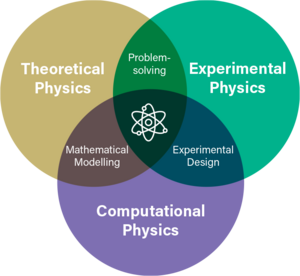 A background in physics is invaluable for a comprehensive understanding of the functioning of emerging technologies and for facilitating their optimal utilisation. Extensive research has consistently demonstrated the significant importance of a physics education across numerous professional domains. This is primarily because physics education fosters the development of transferable skills that have broad applicability in a diverse range of career paths.
A background in physics is invaluable for a comprehensive understanding of the functioning of emerging technologies and for facilitating their optimal utilisation. Extensive research has consistently demonstrated the significant importance of a physics education across numerous professional domains. This is primarily because physics education fosters the development of transferable skills that have broad applicability in a diverse range of career paths.
Studying Physics
A background in physics is invaluable for comprehensively understanding the functioning of emerging technologies and facilitating its optimal utilisation. Extensive research has consistently demonstrated the immense significance of physics education across numerous professional domains. This is primarily attributed to the fact that physics education cultivates the growth of transferable skills that have widespread applicability in a diverse range of career paths.
Major Highlights
- Physics curricula are comprehensive and condensed
- Students can find courses that cover small scale particle physics to large scale cosmology
- The subject matter is intriguing and diverse, offering a range of topics to explore:
- Disciplinary core: quantum mechanics, statistical mechanics, classical mechanics, electrodynamics, etc.
- Disciplinary electives: astrophysics, computational physics, experimental physics, theoretical physics, etc.

Curricula
To cater for students’ different needs, two curricula in Physics are offered:
| Major in Physics (96 credits) |
| > | Provides flexibility for students to pursue their academic and professional interests, abilities, and career aspiration |
| Major in Physics (Intensive) (144 credits) |
| > | Provides comprehensive physics training for students pursuing further studies and specialised careers in science and technology |
Career Prospects
Physics graduates possess both professional scientific qualifications and a broad range of transferable skills, including problem-solving, technical writing, creative thinking, research methodology, IT application, and analytical thinking. Such skills are highly sought after in many employment domains, particularly those that are technology-based, and not limited to scientific roles in industry or government laboratories.
Hear from Our Student

Hong Tsun Thomas WONG
BSc graduate (double major in Physics and Astronomy)
Master of Philosophy in Physics
PhD student in Physics at UC San Diego
‘HKU’s rigorous curriculum and diverse hands-on research opportunities prepared me exceptionally well for my subsequent academic endeavours. The welcoming environment created by the faculty has been incredibly supportive of students pursuing new ideas. I am truly grateful for the encouraging Faculty and the vibrant academic community that inspired and challenged me every step of the way.’
More Sharings
Sharing learning experiences by UG students
Sharing from alumni


